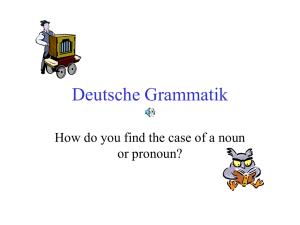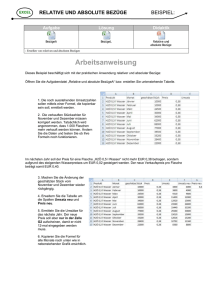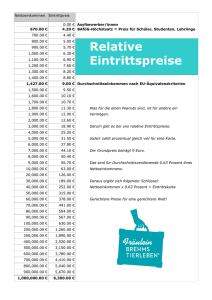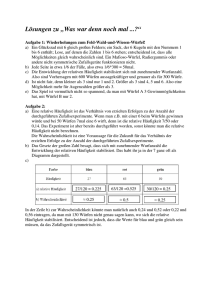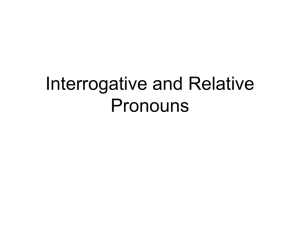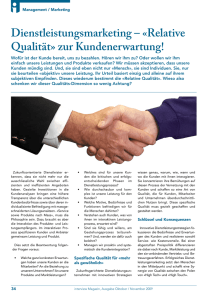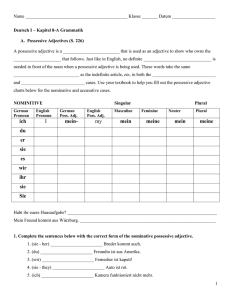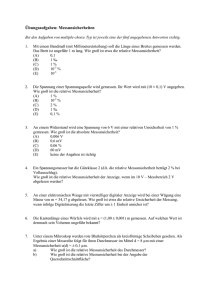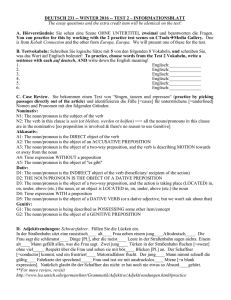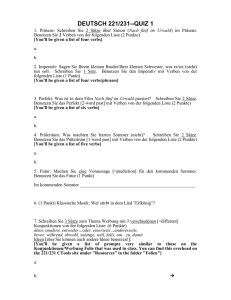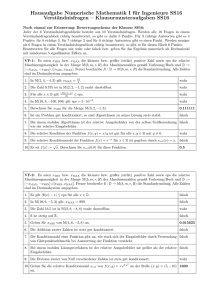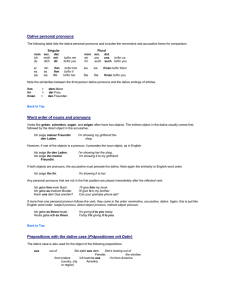Relative clauses - U of L Class Index
Werbung
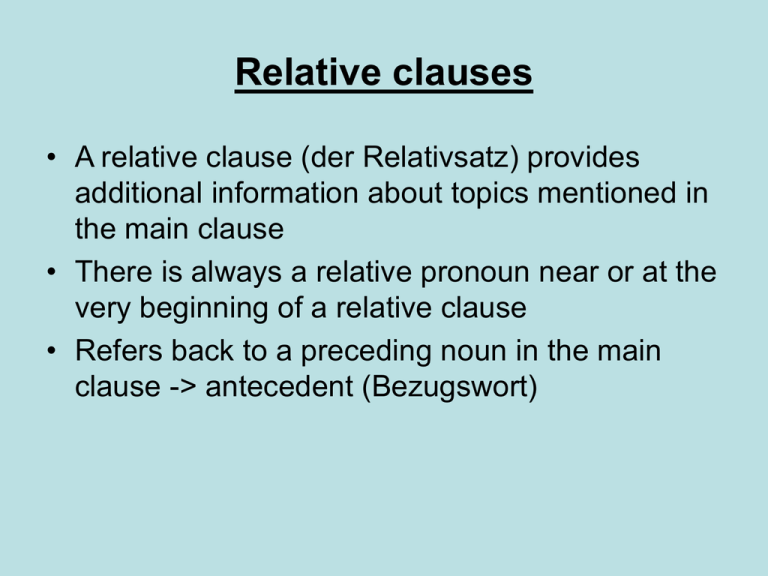
Relative clauses • A relative clause (der Relativsatz) provides additional information about topics mentioned in the main clause • There is always a relative pronoun near or at the very beginning of a relative clause • Refers back to a preceding noun in the main clause -> antecedent (Bezugswort) Nominative relative pronouns • When the relative pronoun is the subject of the relative clause, the relative pronoun appears in the nominative case • Pronouns the same shape as articles: der/die/das – Ich gehe mit Frank, der ein neues Fahrrad hat, einen Kaffee trinken. – Kennst du die Frau, die dort am Tisch sitzt? – Das Haus, das du dort siehst, ist sehr alt. – Für die Leute, die vor 8 Uhr ankommen, gibt es ein Geschenk Accusative case relative pronouns • When a relative pronoun functions as a direct object, it is in the accusative case (den/die/das/die) – Der Mann kommt aus Algerien. Barbara hat den Mann bei der Arbeit kennengelernt. – Der Mann, den Barbara bei der Arbeit kennengelernt hat, kommt aus Algerien. Dative case relative pronouns • A relative pronoun may also replace a noun in the dative case (dem/der/dem/denen) – Der Mann ist Herr Kronenmeyer. Wir geben dem Mann die Materialien. – Der Mann, dem wir die Materialien geben, ist Herr Kronenmeyer. Relative pronouns after prepositions • A relative pronoun can also replace a noun after a preposition and then appears in the case required by that preposition. – Das ist die Stelle, für die ich morgen ein Vorstellungsgespräch habe. – Das sind die Produkte, mit denen wir den Preis gewinnen wollen. – Das ist ein Job, in dem man viel Geld verdient.
